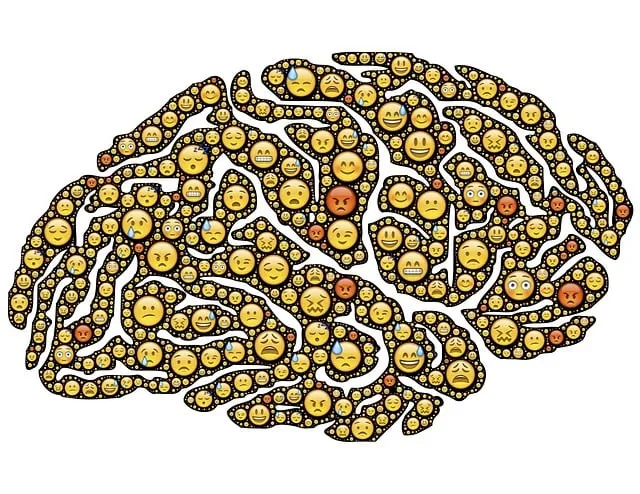Emotion regulation techniques, such as Mindfulness Meditation and Cognitive Behavioral Therapy (CBT), are crucial for well-being, especially in high-stress environments like healthcare. Kaiser Permanente Mental Health Services in Denver offers evidence-based therapies, cultural competency training, and programs to empower individuals with emotional coping strategies, preventing burnout and fostering mental resilience. Structured environments at home and school, combined with mindfulness exercises, journaling, and education, support emotion regulation skills development. These techniques significantly improve quality of life, as evidenced by success stories, ultimately promoting mental wellness for diverse populations, including students and healthcare providers.
Emotion regulation is a vital skill, crucial for maintaining overall well-being. In today’s fast-paced world, understanding and managing our emotions effectively becomes increasingly important. This article explores the significance of emotion regulation techniques and how they can be taught to individuals of all ages. We delve into the role of Kaiser Permanente Mental Health Services in Denver, known for its comprehensive programs. By examining common techniques and practical steps, parents and educators can empower others to navigate their emotional landscapes successfully.
- Understanding Emotion Regulation: Why It Matters for Overall Well-being
- The Role of Kaiser Permanente Mental Health Services in Denver
- Common Techniques for Teaching Emotion Regulation Skills
- Practical Steps to Implement These Techniques at Home and School
- Success Stories: Real-Life Impact of Learning Emotion Regulation Techniques
Understanding Emotion Regulation: Why It Matters for Overall Well-being

Emotion regulation is a vital skill that plays a crucial role in maintaining overall well-being. It’s about understanding and managing our feelings, both positive and negative, to ensure they don’t overwhelm us or impact our decision-making processes. In today’s fast-paced world, where healthcare professionals like those at Kaiser Permanente Denver often face high-stress situations, effective emotion regulation techniques become essential tools.
By learning these skills, individuals can prevent burnout, a common concern among healthcare providers as per Burnout Prevention Strategies for Healthcare Providers. Mindfulness Meditation has been shown to be an effective method for cultivating emotional balance and reducing stress. Additionally, Mental Wellness Coaching Programs Development offers structured support, helping individuals develop personalized strategies to navigate life’s challenges and enhance their mental resilience, all of which contribute to a healthier, happier life.
The Role of Kaiser Permanente Mental Health Services in Denver

In Denver, Kaiser Permanente Mental Health Services stands as a beacon for individuals seeking support in managing their emotions and mental well-being. As a renowned healthcare provider, Kaiser Permanente offers a comprehensive range of services tailored to meet diverse needs. Their expertise lies in providing evidence-based therapy options, including cognitive-behavioral therapy (CBT), mindfulness practices, and emotional regulation techniques, all designed to empower individuals with coping strategies for a healthier mind.
The organization’s commitment to cultural competency training ensures that their mental health professionals are equipped to serve a diverse population. By integrating positive thinking and stress management techniques into their practice, Kaiser Permanente fosters an environment where individuals feel supported and understood. This holistic approach not only addresses the symptoms but also promotes long-term emotional resilience, making it a trusted partner in navigating life’s challenges.
Common Techniques for Teaching Emotion Regulation Skills

Teaching emotion regulation skills is a crucial component of comprehensive mental health education. At Kaiser Permanente Mental Health in Denver, professionals often employ evidence-based techniques to empower individuals with effective coping strategies. One widely recognized approach is Cognitive Behavioral Therapy (CBT), which helps individuals identify and challenge negative thought patterns contributing to emotional distress. CBT provides tools for reframing thoughts and behaviors, thereby improving emotional resilience.
The Mental Health Education Programs Design at Kaiser Permanente focuses on tailoring these techniques to diverse populations. Through interactive workshops and group therapy sessions, participants learn to recognize and manage emotions effectively. Coping Skills Development is another integral part of this process, involving strategies like mindfulness meditation, deep breathing exercises, and progressive muscle relaxation. These practices enable individuals to respond rather than react to challenging situations, fostering better emotional regulation in daily life. Additionally, Mental Health Policy Analysis and Advocacy plays a role in promoting awareness and access to emotion regulation resources within communities.
Practical Steps to Implement These Techniques at Home and School

Implementing emotion regulation techniques at home and school requires a structured yet adaptable approach. For parents and educators, start by identifying triggers specific to the individual and establishing a safe space for emotional expression. Incorporate activities like mindfulness exercises, deep breathing, or journaling to help students process their feelings effectively. Regular practice of these techniques can significantly enhance emotional intelligence.
In educational settings, integrating lessons on emotional awareness and coping strategies into the curriculum benefits both students and faculty. Encouraging open dialogue about mental health, particularly through cultural sensitivity in mental healthcare practices, fosters an inclusive environment. Moreover, considering burnout prevention strategies for healthcare providers—including those at Kaiser Permanente mental health number Denver—can indirectly support students’ emotional well-being by promoting a healthy adult role model.
Success Stories: Real-Life Impact of Learning Emotion Regulation Techniques

Many individuals have experienced significant transformations after learning and implementing emotion regulation techniques, as evidenced by success stories from across the country. For instance, in Denver, Colorado, a young adult who struggled with anxiety and depression found solace through Cognitive Behavioral Therapy (CBT) and mindfulness practices. With guidance from a mental health professional at Kaiser Permanente, they developed coping mechanisms that not only managed their symptoms but also enhanced their overall quality of life. This individual’s journey is a testament to the power of learning emotional regulation skills in fostering resilience and improving mental wellness.
Public Awareness Campaigns Development has played a pivotal role in spreading knowledge about these techniques, reaching countless individuals seeking better ways to navigate their emotions. Resilience Building through journaling exercises and other self-care practices has become a common thread in many success stories. People are discovering that by keeping a Mental Wellness Journal, they can track their progress, identify triggers, and gain deeper insights into their emotional responses. This proactive approach encourages continuous growth and helps individuals maintain control over their mental health, even during challenging times.
Emotion regulation techniques are powerful tools for enhancing overall well-being, as highlighted by the support offered by Kaiser Permanente mental health services in Denver. By understanding the importance of these skills and utilizing common teaching methods, both at home and in educational settings, individuals can navigate life’s challenges more effectively. The success stories shared in this article underscore the profound impact that learning emotion regulation techniques can have on daily lives. Embracing these strategies can foster resilience and promote a healthier, happier existence for folks across Denver and beyond.






